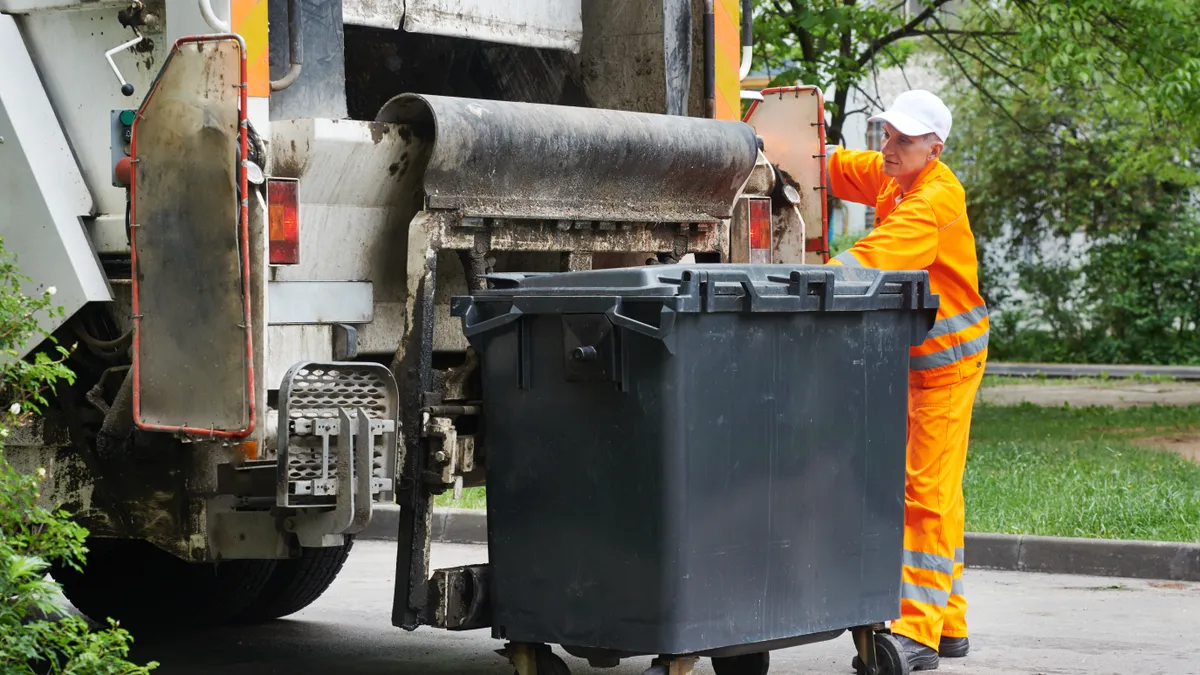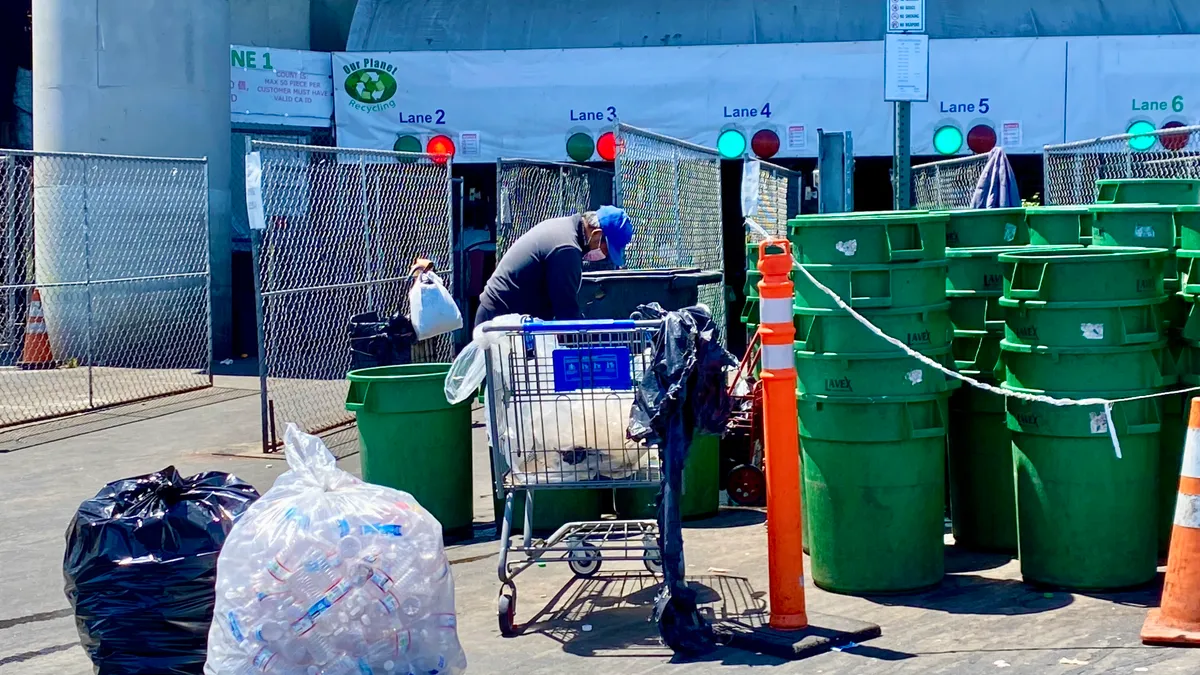Dive Brief:
- The city of Fayetteville, NC began transitioning to automated side-loader collection trucks years ago, but some residents still don't know the right way to put their carts out for efficient collection. Since half of the city's single-family homes are rentals there is a continuous need for reeducation that has been difficult to address, as reported by Route Fifty.
- Students from Duke University's Sanford School of Public Policy teamed up with the city's Environmental Services Department to test out a social experiment. One group of residents received a personalized letter explaining why placing carts with handles facing the curb — away from mailboxes or trees — made collection faster. Another group of residents received stickers on their carts with instructions and a third group received both.
- The stickers on carts were found to be the most successful method by far, indicating the power of visual messages.
Dive Insight:
Automated collection has been on the rise this year in many communities throughout the country and this is likely to continue in 2017 as others consider making the switch. Some residents have complained about different pick-up schedules or procedures at first, however they often adapt fast. Though as seen in Fayetteville that doesn't mean they're placing carts out correctly, which can significantly slow down a process that is meant to be more efficient.
This sticker approach is similar to other small social experiments that have seen positive results in nudging customers to do the right thing with their waste and recycling. Faced with large amounts of illegal dumping, San Jose, CA tested out a variety of mailers and the one which told people they'd been selected for a free large item removal — a service offered to all residents — was the most successful. Cities such as Chicago have also been trying targeted educational approaches to reduce recycling contamination and boost diversion.
While it may be difficult to get every customer to perfectly comply with collection guidelines, especially when it comes to recycling, this Fayetteville experiment shows that targeted efforts can help drive changes in behavior.












